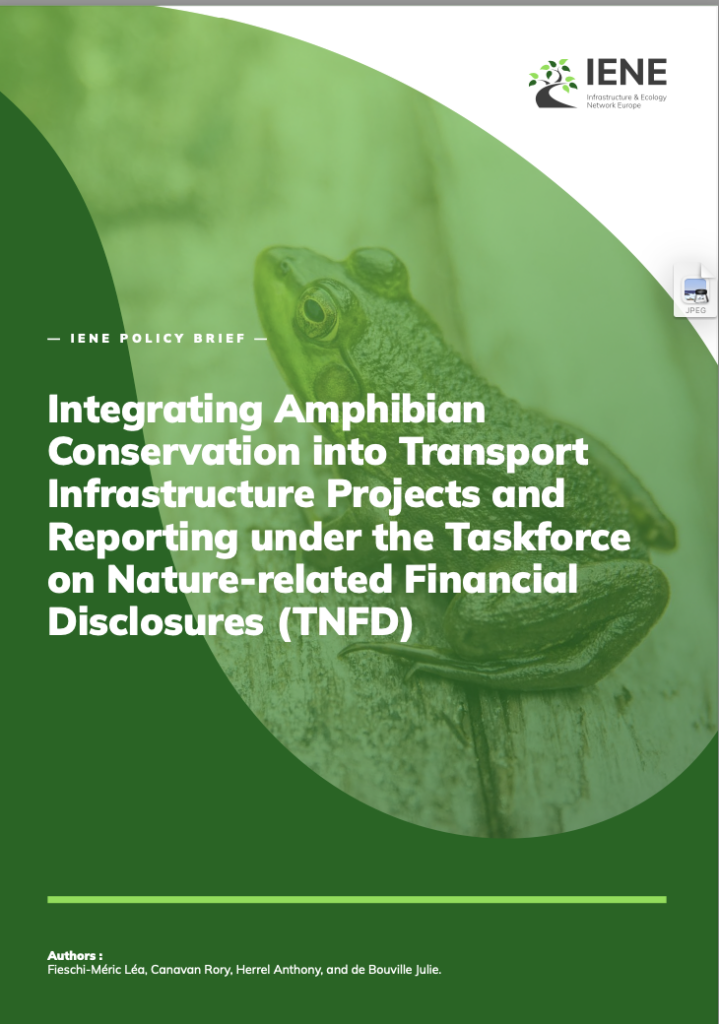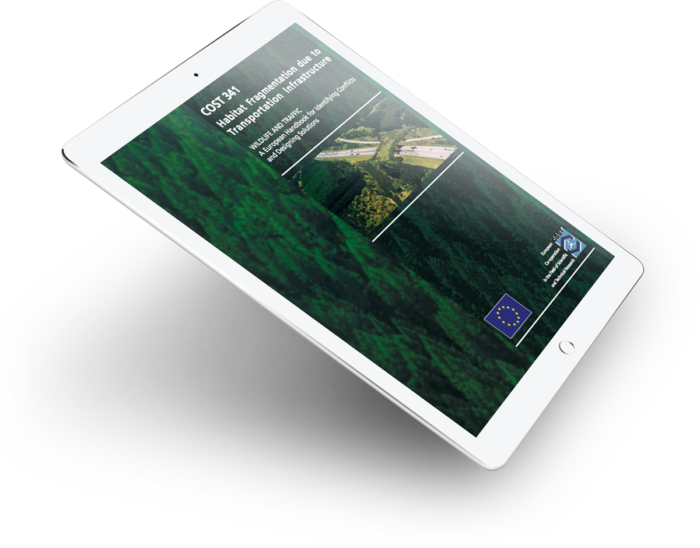In light of the biodiversity crisis, transport infrastructure (TI) organisations must reassess their impact on nature and take action for sustainability. The CBD COP15 recognised the necessity of engaging the private sector in addressing global biodiversity decline, with Target 15 of the GBF urging companies to monitor, assess, and disclose their impacts on biodiversity. Emerging frameworks like TNFD (Taskforce on Nature-related Financial Disclosures) and SBTN (Science Based Target Network) support this paradigm shift towards environmentally-conscious practices.
This policy brief guides mitigation measures to reduce the negative impact of TI on amphibians, a class of which 40.7% are globally endangered, mainly due to urbanisation and infrastructure development. TI reinforces four of the five direct drivers of biodiversity loss identified by IPBES—land use change, pollution, climate change, and invasive species. The brief focuses on roads and railways, which are significant contributors to amphibian decline, emphasizing (1) avoiding impacts from the outset, (2) integrating research-based mitigation measures, and (3) abandoning projects with unmanageable residual impacts.
These amphibian-directed interventions align with SBTN and TNFD, and integrating them into CSRD (corporate sustainability reporting directive) and ESRS (European Sustainability Reporting Standards) enables TI organisations to meet regulatory requirements while demonstrating transparency and accountability. This proactive approach promotes sustainable development, positively impacting both stakeholders and investors.
This IENE policy brief will be presented at the Business & Nature Hub at COP16 in a session titled “Enabling Nature-Positive Strategies in the Transport Sector: Advancing Nature Recovery and Sustainable Development through the IENE Transport4Nature Initiative.”

